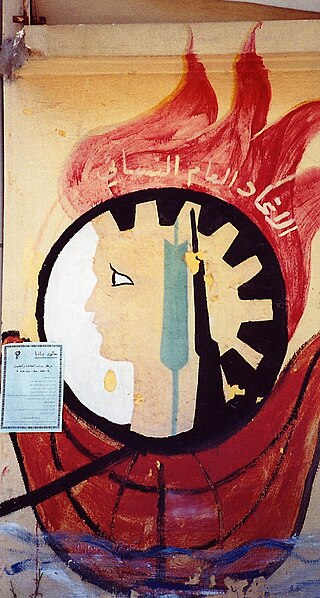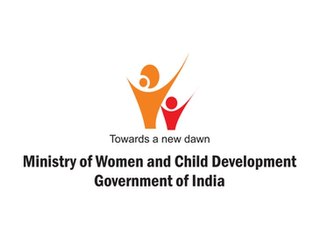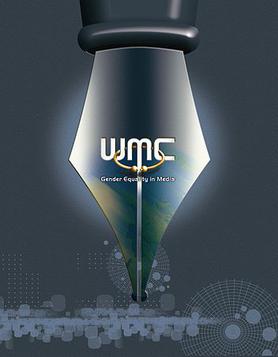Empowerment is the degree of autonomy and self-determination in people and in communities. This enables them to represent their interests in a responsible and self-determined way, acting on their own authority. It is the process of becoming stronger and more confident, especially in controlling one's life and claiming one's rights. Empowerment as action refers both to the process of self-empowerment and to professional support of people, which enables them to overcome their sense of powerlessness and lack of influence, and to recognize and use their resources.
Contributing to the establishment of human rights system in Africa are the United Nations, international law and the African Union which have positively influenced the betterment the human rights situation in the continent. However, extensive human rights abuses still occur in many sections of the continent. Most of the violations can be attributed to political instability, racial discrimination, corruption, post-colonialism, economic scarcity, ignorance, illness, religious bigotry, debt and bad financial management, monopoly of power, lack/absence of judicial and press autonomy, and border conflicts. Many of the provisions contained in regional, national, continental, and global agreements remained unaccomplished.

The Fourth World Conference on Women: Action for Equality, Development and Peace was the name given for a conference convened by the United Nations during 4–15 September 1995 in Beijing, China.

The General Union of Syrian Women (GUSW) was founded in 1967 with Saud al Abdallah serving as the original president. It aimed to mobilize women while developing their education, political activism, and skills that helped women become more effective members in socio-economic settings. While Syrian women have historically held more rights when compared to the rest of the Arab world, the GUSW is working to put an end the isolation and marginalization of Syrian women as well as involve women to become more of an effective population in society. This movement was born out of the unification of various welfare associations, volunteer organizations, and welfare groups caused by various political shifts in Syria.
The Agoro Community Development Association (ACDA) is a Non-governmental organization (NGO) that assists the rural Agoro community in northern Uganda’s Lamwo and Kitgum districts. These districts have a religiously and culturally diverse population of over 600,000, most of whom are Acholi. Post Ugandan Independence in 1962 the area has suffered almost continual conflict, persecution & neglect, much of it based on ethnic tensions. Socio-culturally, there has traditionally been deep gender inequality and power imbalance between men and women. Sexual violence, child marriage and lack of respect for property rights against girls and women remain a prevalent, but silent, crime.

The Ministry of Women and Child Development, a branch of the Government of India, is an apex body for formulation and administration of the rules and regulations and laws relating to women and child development in India. The current minister for the Ministry of Women and Child Development is Annpurna Devi having held the portfolio since 2024.

The Ministry of Women, Family and Community Development, abbreviated KPWKM, is a ministry of the Government of Malaysia responsible for social welfare: children, women, family, community, older people, destitute, homeless, disaster victim, disabled. The ministry determines the policies and direction to achieve the goals of gender equality, family development and a caring society in line with Malaysia's commitment towards the United Nations' Convention on the Elimination of All Forms of Discrimination Against Women and the Beijing Declaration.
Doreen Nampiye Sioka is a Namibian politician. She is member of the National Assembly of Namibia since 1994 for the South West Africa People's Organization (SWAPO), and a member of the cabinet since 2005, serving as Minister of Gender Equality, Poverty Eradication and Social Welfare.

The Women Media Center (WMC) is a non-profit organization created in 2005 to promote women journalists and women in the media in Pakistan. Based in Karachi, Pakistan, the Center promotes gender equality in Pakistani mass media.
Namibia is a country of origin, transit, and destination for foreign and Namibian women and children, and possibly for men subjected to trafficking in persons, specifically conditions of forced labor and forced prostitution. Traffickers exploit Namibian children, as well as children from Angola and Zambia, through forced labor in agriculture, cattle herding, involuntary domestic servitude, charcoal production, and commercial sexual exploitation. In some cases, Namibian parents unwittingly sell their children to traffickers. Reports indicate that vulnerable Namibian children are recruited for forced prostitution in Angola and South Africa, typically by truck drivers. There is also some evidence that traffickers move Namibian women to South Africa and South African women to Namibia to be exploited in forced prostitution. Namibian women and children, including orphans, from rural areas are the most vulnerable to trafficking. Victims are lured by traffickers to urban centers and commercial farms with promises of legitimate work for good wages they may never receive. Some adults subject children to whom they are distantly related to forced labor or commercial sexual exploitation. Small business owners and farmers may also participate in trafficking crimes against women or children. Victims are forced to work long hours to carry out hazardous tasks, and may be beaten or raped by traffickers or third parties.
Feminism in Thailand is perpetuated by many of the same traditional feminist theory foundations, though Thai feminism is facilitated through a medium of social movement activist groups within Thailand's illiberal democracy. The Thai State claims to function as a civil society with an intersectionality between gender inequality and activism in its political spheres.

The Gender Park, established in 2013, is an initiative of the Government of Kerala to work towards gender equality and empowerment in the state. It is headquartered in the state's capital, Thiruvananthapuram. Its main 24-acre campus is set at Silver Hills, Kozhikode (Calicut). With a key focus on gender justice, it is a platform for policy analysis, research, advocacy, capacity development, economic and social initiative. It found standing under the Department of Social Justice and is the first space of its kind in the world. Currently working under the Department of Women and Child Development, it aims to become a premier convergence point for gender-related activities. Recently, UN Women and The Gender Park have entered into an equal partnership to develop the Park as a South Asian hub for gender equality.
Nepal, a Himalayan country situated in South Asia, is one of the poorer countries because of undeveloped resources. It has suffered from political instability and has had undemocratic rule for much of its history. There is a lack of access to basic facilities, people have superstitious beliefs, and there are high levels of gender discrimination. Although the Constitution provides for the protection of women, including equal pay for equal work, the Government has not taken significant action to implement its provisions.
A ministry of women or women's affairs exists in several countries under various names, often headed by a minister for women :

Women's empowerment may be defined in several ways, including accepting women's viewpoints, making an effort to seek them and raising the status of women through education, awareness, literacy, and training. Women's empowerment equips and allows women to make life-determining decisions through the different societal problems. They may have the opportunity to re-define gender roles or other such roles, which allow them more freedom to pursue desired goals.
The Rivers State Ministry of Women Affairs is the civil service department of Rivers State charged with advising the government on policies and programs involving women and gender equality. The ministry was formed in 1997 and took over the functions of the former Rivers State Commission for Women. Its current headquarters are at Marine Base, Port Harcourt.

Women living in Myanmar continue to face barriers to equality. After forty years of isolation, myths about the state of women's rights in Myanmar (Burma) were centered around the conception that Burmese women face less gender discrimination and have more rights than women in surrounding Southeast Asian nations. After Myanmar opened its borders in 2010, gender discrimination began to be seen by the international community. Currently, a variety of organizations--both domestic and international--strive to educate people that this is a misconception to better make strides towards protecting women's rights in Myanmar.
Foreign aid for gender equality in Jordan includes programs funded by governments or non-governmental organizations (NGOs) that aim to empower women, close gender based gaps in opportunity and experience, and promote equal access to education, economic empowerment, and political representation in the Hashemite Kingdom of Jordan.
Alice Banze is a trained social scientist with a career in civil society organizations like Oxfam, and Gender Links and government. She is the executive director of Gender and Sustainable Development Association and a member of the UN Women-supported African Women Leaders Network. In December 2020, Banze was elected member of the National Elections Commission with the support of the Women's Forum, an umbrella grouping of Mozambican women's rights organizations.
Association for the Promotion of the Status of Women (APSW) is a women's organization in Thailand, founded in 1970.






